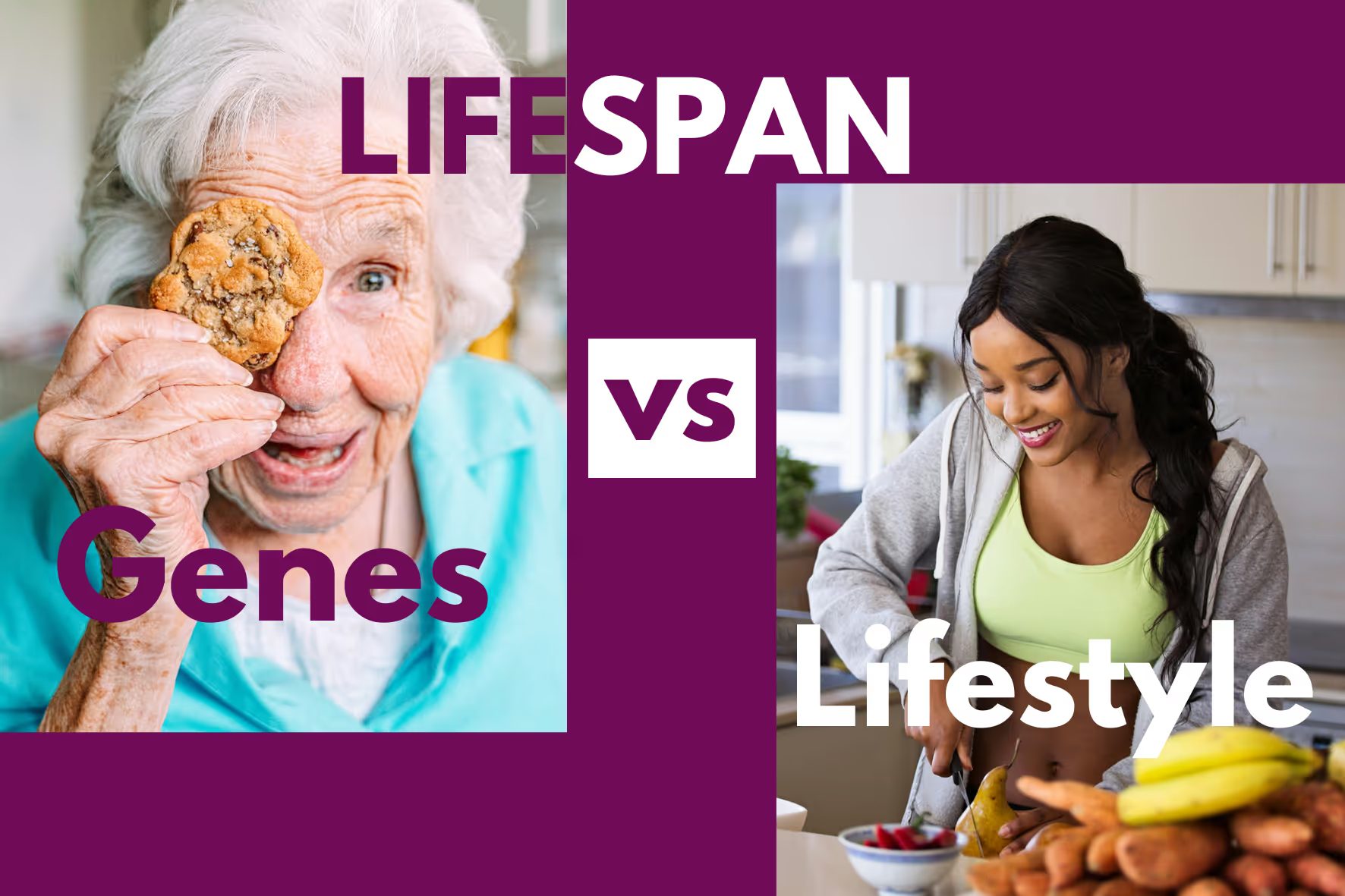Do you feel your genes are stacked against you?
Perhaps you stem from a family plagued with the likes of cancer, diabetes or dementia and wonder if there’s anything you can do about it. Perhaps you have already given up and decided to abide by the “Eat, Drink and Be Merry!” motto, unless it’s the “Couch Potato” creed.
The good news, however – according to a new study (Bian Z, Wang L, Fan R, et al. BMJ Evidence-Based Medicine) – is that even “bad genes” are not an excuse to give up on “good lifestyle”. Indeed, the authors state that “the genetic risk of a shorter lifespan or premature death might be offset by a favourable lifestyle by approximately 62%.” Conversely, fatalistically (and passively) submitting to poor prospects if you have a genetic predisposition to a short lifespan means that you could have a “2.04 times higher death risk compared with those with a genetic predisposition to a long lifespan and a favourable lifestyle.” Hence, as the researchers further explicit, looking after yourself despite a challenging family health history can really pay off: “Participants with high genetic risk could prolong approximately 5.22 years of life expectancy at age 40 with a favourable lifestyle”.
Based on a huge cohort of 353 742 participants of European ancestry (from UK Biobank) with a median follow-up of 12.86 years as well as data from the LifeGen and US NHANES cohorts, the study authors based in China and Scotland, have come up with substantial evidence, even if their findings will have to be validated in other settings, due to the lack of ethnic diversity.
Moreover,the researchers also analysed the respective weight of healthy lifestyle factors as they relate to lifespan and concluded that “no current smoking, regular physical activity, adequate sleep duration, and a healthy diet” brought the greatest advantages.
Of course, we’ve long been preaching the healthy lifestyle gospel at epiAge (instead of “the” magic longevity pill) because we regularly witness the effects of lifestyle changes on biological age. But it’s rather nice to have another tangible correlation to buttress our everyday experience.
So, it may be time to jump off the couch after your siesta, move more, and check out what is on your plate in your glass – irrespective of your genetic “destiny”!
Source
Bian Z, Wang L, Fan R, et al. “Genetic predisposition, modifiable lifestyles, and their joint effects on human lifespan: evidence from multiple cohort studies”. BMJ Evidence-Based Medicine. Published Online First: 29April 2024. doi: 10.1136/bmjebm-2023-112583. Online: https://ebm.bmj.com/content/early/2024/04/16/bmjebm-2023-112583
 Back to all posts
Back to all posts